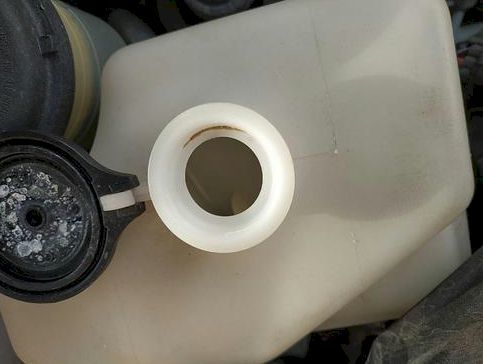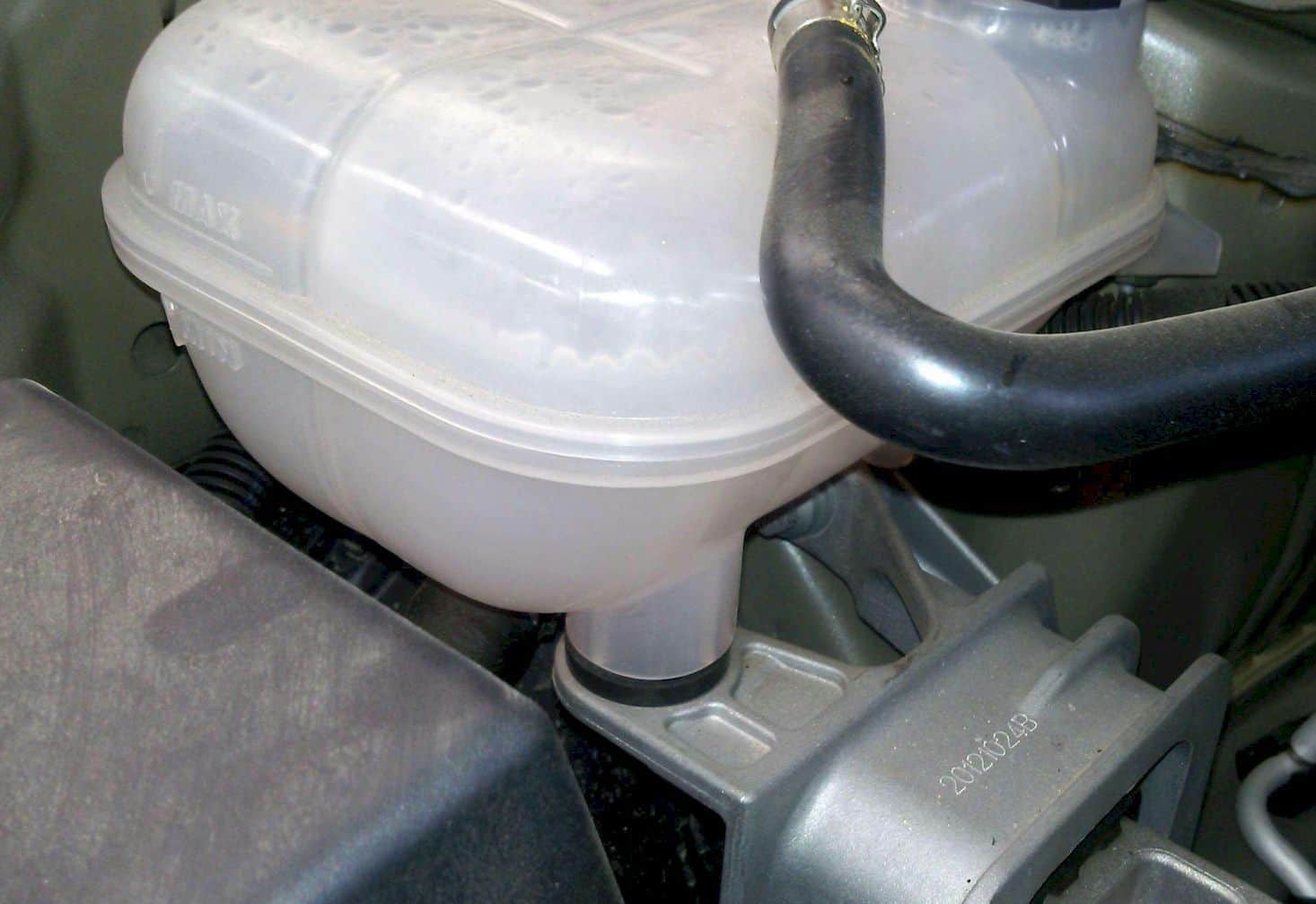Have you ever wondered how to dispose of antifreeze every time you change your engine coolant? Antifreeze is composed of dangerous heavy metals such as lead, cadmium, and chromium. Irresponsibly throwing old antifreeze to sewers and in the soil can harm the environment and it can even harm people, plants, and animals.
Different regions, states, and countries have different laws against the use and disposal of antifreeze. You should contact your local office to ask how you must dispose of antifreeze. You may also ask local garages and car repair experts about old engine coolants and how to dispose of them. Some garages even accept old engine coolants and they will tell you how to go about packing antifreeze before you drop it off.
Why antifreeze handling matters?
Indeed, handling antifreeze is not just taking the trash out or recycling antifreeze. You must be careful not to let antifreeze seep through your container and soil or water.
If you overlook correct antifreeze handling, you could end up holding or touching the antifreeze. You may also injure garbage collectors and drivers as they hold your trash to sort and dispose of them. So never overlook proper antifreeze handling at all costs.
Never pour old antifreeze down your drain! Animals and plants will likely have access to where the water from your home is dumped. Animals can't tell if it is water or antifreeze because it smells sweet and is cool and thus, they will end up drinking it. Also, never dump antifreeze in the toilet.
The two components of antifreeze
- Ethylene Glycol - this is a very toxic material that can cause birth defects and damage to the reproductive system. It can even cause death if you accidentally drink it. This is why this chemical should be handled with utmost care. Ethylene glycol comes with a sweet and refreshing flavor and is very appealing to animals, pests, and even small kids.
- Propylene Glycol – This is another type of chemical in antifreeze that's less toxic, but is still harmful if this is ingested in high amounts. Small doses are not lethal, but still, it should be disposed of properly and kept away from children and pets.
How do experts recycle antifreeze?
Newer technologies are now available to recycle antifreeze. Experts use special machines that remove metals, oil, and fuel from the antifreeze. After this is done, chemicals that stop the breakdown of ethyl glycol are also added. Afterward, the antifreeze is packed, sealed, and used in other car engines.
There are other methods used to recycle antifreeze. Some experts rely on vacuum distillation, which takes the engine coolant to a drum through a vacuum. The coolant is then boiled and this extracts all the water. When the water is removed, the water is heated so it will evaporate.
After the water vaporizes from the coolant, an ion-exchange method is used. Any positively-charged ions are removed from the coolant. This includes dirt, grime, and metals. After using the ion exchange method, the antifreeze is now clean and ready to use in another car engine.
How to dispose of antifreeze?
Antifreeze must be disposed of responsibly. There are many ways to dispose of this chemical without dumping it in waters or soil. It is also unsafe to dump used or unused antifreeze in canals and other waterways as these will still end up in the rivers and oceans which will only cause pollution and hazards to wildlife.
- To dispose of antifreeze properly, place it in a tight container with a cover.
- Label the outside part of the container to let the garbage disposal personnel know that they are dealing with a hazardous substance. Most garbage disposal units come with chemical or substance disposal systems. They don't dump it just anywhere, not even in landfills. Most are also collected by a third-party company that will recycle or dispose of antifreeze properly.
- Disposing of antifreeze containers is another thing. The chemical may still be stuck in the container and this may still pose a hazard. To dispose of an antifreeze container, label the container and place it inside a plastic bag. Do not let this mix with ordinary garbage, but dispose of this separately. Again, let the garbage disposal personnel understand that they are dealing with antifreeze.
How to Dispose of Antifreeze YouTube Video
How to dispose of antifreeze mixed with oil?

When antifreeze is mixed with oil, you may think that it's okay, just pouring it anywhere because it's mixed with oil. This is not true, you must still carefully dispose of antifreeze mixed with oil. You can take it to a garage that accepts antifreeze recycling. The oil will be removed using a special process that takes the oil out of the antifreeze without spilling.
Sometimes, antifreeze is mixed with other products and this is not acceptable. It won't be able to perform better if you let the oil remain or mixed with antifreeze. Take your antifreeze with oil to a nearby garage and ask if they can remove oil for you. Don't throw away antifreeze, recycle it.
Never pour antifreeze into the ground!
If you spilled antifreeze on the ground, make sure that you wear protective clothing such as a mask and gloves to avoid breathing the antifreeze fumes. Use an absorbent material like paper towels, sand, kitty litter, or baking soda to remove the liquid and all other stains.
Use paper towels to cover the materials and just let the paper towels stand for at least three hours. Use the paper towels to wipe the material completely. Use more paper towels to absorb more of the material.
When you're done wiping take all the used paper towels and dispose of these properly using a separate garbage bag. Wash your hands after you handle paper towels contaminated by antifreeze. The area where the material remained or where there are stains, should be removed right away. Use soap and water to wash the area clean. Use clean water to flush away soap and water. Let the area dry out completely. Let it air dry or add a layer of paper towels or newspapers in the area.
How to dispose of unused antifreeze?
Sometimes there is unused antifreeze or you've overestimated your supply. You can either dispose of it or use it. So, follow the instructions carefully to ensure that you're handling antifreeze safely.
Unused antifreeze is as dangerous as old antifreeze so do not overlook handling it with care. Depending on your area or region’s waste disposal rules, you must dispose of antifreeze in a well-sealed container and label it. You may also take it to a local garage who will gladly take any unused antifreeze.
Does AutoZone recycle antifreeze?
AutoZone has many outlets all over the US and there is surely one near you. To find out, search for antifreeze disposal near me and you will surely find the nearest AutoZone that will take care of your antifreeze.
AutoZone is the largest retailer of aftermarket auto parts and supplies and it also carries some of the best antifreeze products for all kinds of vehicles including trucks, SUVs, and cars. Just some of the most popular AutoZone antifreeze products are the 50/50 antifreeze and the Dex-Cool antifreeze. This company accepts old and unused antifreeze as it has special machinery that cleans antifreeze to be reused.
To find out if the local AutoZone near you accepts antifreeze recycling, call their local number. Also, ask about how you should pack your old antifreeze before you take it to them. Coolant disposal AutoZone services ensure that antifreeze is not just thrown away irresponsibly.
Who takes used antifreeze?
If you're wondering if there is an antifreeze disposal Walmart service, it is not certain if all Walmarts accept antifreeze. Some stores accept only used oil and help dispose of them. If you're uncertain, contact the nearest Walmart and ask how to dispose of old antifreeze. They will likely inform you if they accept antifreeze or oil only.
Ask local authorities for local disposal of chemical waste.
If there is no AutoZone near you or local garages won’t take your old antifreeze, contact your local chemical waste disposal service. You may also try private garbage disposal companies if your local garbage unit won’t accept old antifreeze.
In some regions, garbage units also take radiator fluid disposal and used coolant disposal for free. They will only ask you to place your used coolant in proper containers or bags and properly label them beforehand.
You can always take your car to a local shop for checks and regular engine coolant flushing. This way, you don’t have to worry about how to dispose of old antifreeze and anything about proper engine coolant disposal.
Now that you know how to dispose of antifreeze, you must always consider proper disposal of old coolants and other engine or radiator fluid disposal. You must also understand your local laws about antifreeze disposal, especially if there are very tight rules about proper waste disposal in your area. Always be responsible for antifreeze disposal; you're greatly contributing to the environment when you dispose of antifreeze correctly and efficiently.
Simon graduated with a Mechanical and Electrical Engineering Degree. He has over 20 years of servicing experience in both Japanese and German car dealerships. He now acts as a freelance mechanic’s instructor for local schools.
